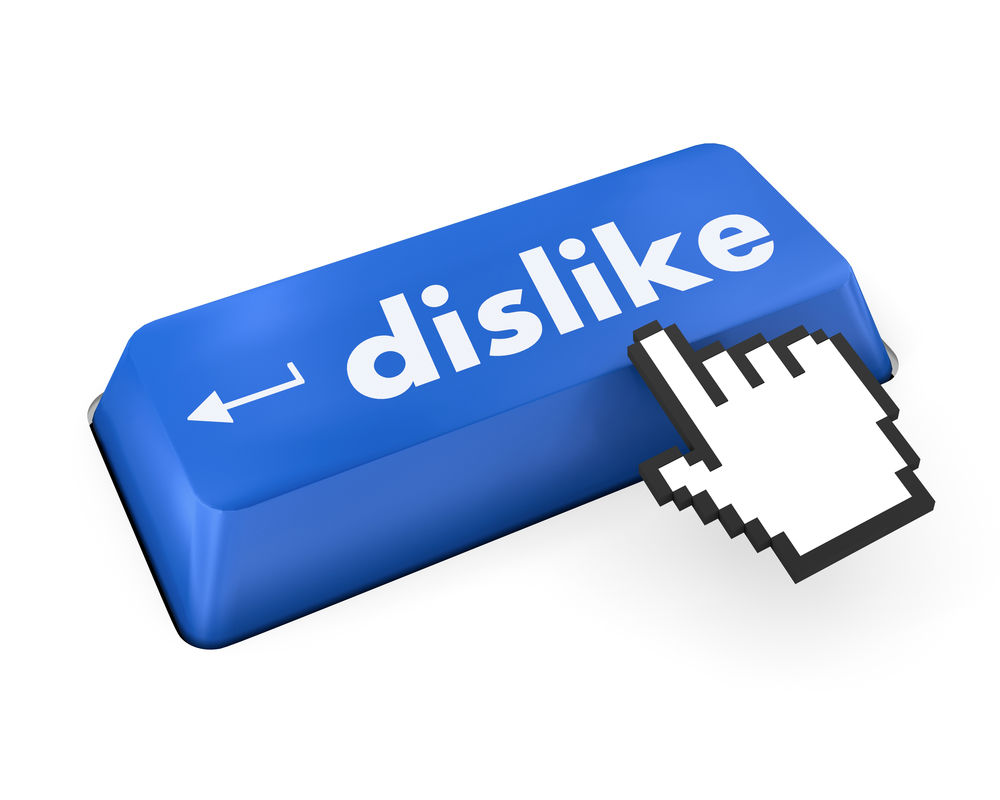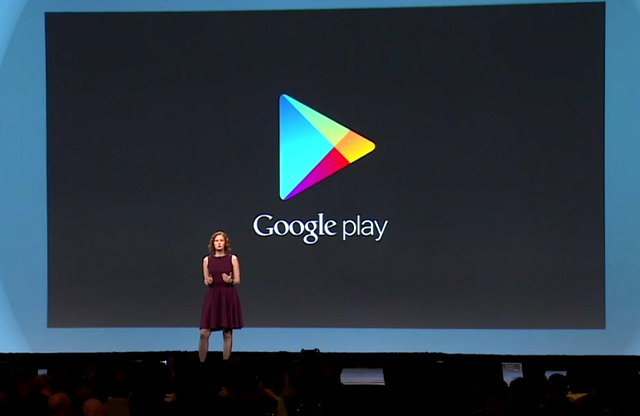
Wilson's Weekend Whine: Snowden is right to be disgusted at UK 'emergency surveillance bill'
When we talk about surveillance online, it is almost always with reference to the NSA and activities in the US. But US citizens are far from being the only web users affected by surveillance. The NSA has long arms, but there are also similar activities going on in plenty of other countries. This week in the UK, the government is pushing through legislation that requires phone and internet companies to store information about customers' communication, and to hand it over to authorities on request. What made this particularly unusual was the fact that this was classed as emergency surveillance legislation with little to no debate and, more importantly, no public consultation whatsoever. Edward Snowden has plenty say on the matter, likening the British government to the NSA.
The legislation covers not only UK-based companies, but also those based in other countries who have gathered data about UK customers. It is in direct opposition to a recent European court ruling that said retention of data was a violation of European law. This in itself would be reason for any surveillance-related laws to be debated, but the government chose instead to use emergency measures -- usually reserved for times of war or disaster -- to push through laws it knows will prove unpopular. As we are now used to hearing, the surveillance is not about recording phone calls, or storing individual emails and text messages, but about retaining the related metadata -- who contacted who, when, for how long, from where, and so on.

MindRDR Google Glass app gives users telekinetic powers
"Imagine a world where you can interact with a digital device just by thinking about the content you want -- that's the world we're building", enthuses This Place CEO Dusan Hamlin.
This might sound like a feature of the distant future or cutting-edge technology straight from a sci-fi film. But this is exactly what 'This Place' has created in its innovative new app called MindRDR (pronounced 'mind-reader'). Combining NeuroSky's Mindwave Mobile -- an EEG biosensor that has a contact point with the user's temple and monitors changes in the user's brainwaves -- and Google Glass, this app could be the next stage in merging wearable technology with telekinetics.

Technical innovation and its impact
Where would we be without innovation? In the dark most probably. It's what drives the commercial world forward, in particular the "disruptive technologies" that radically change the way that the world operates.
Marketing specialist Pulp-PR has put together an infographic from a number of data sources showing the effect these technologies have and highlighting what it thinks are the currently most innovative tech companies.

Poor Wi-Fi risks losing hotels repeat business
The hotel and leisure industry is based on understanding and meeting customer needs. But new research from network hardware company NETGEAR suggests that this doesn't stretch to the importance guests place on good Wi-Fi connections.
The study finds that 76 percent of hospitality venues are convinced that their quality of service and facilities are far more important to customers than Wi-Fi. As many as 43 percent believe customers think poor or non-existent wireless access is a price worth paying for the experience on offer.

Is Russia on the verge of creating its own controlled, closed internet?
The idea of a closed internet is hardly new; turn your eyes to East Asia, and the Great Firewall of China looms large. The Chinese government is well known for the control it likes to exert over the levels of access its citizens have to the internet, and there have been numerous well-publicized cases of censorship and access being restricted to pages that refer to certain events in the county's history. The country is highly defensive of its image, and goes to great lengths to fight off western influence -- including going as far as banning Windows 8 on government computers lest machines furnished with Microsoft's most recent operating system be used for spying on the People's Republic of China. Now it looks as though Russia could be going down a similar route.
Russian parliament has just passed a law that requires internet companies to store data about Russian citizens within the county's boundaries. The move can be viewed in a couple of ways. It is no secret that the Russian government, and Vladimir Putin in particular, is no fan of social media -- social networks were used by Russians to voice their disapproval at Putin's activities. It is thought that the move to contain citizen's data without Russia is a bid to create a Russian version of China's closed internet.

The most popular stories on BetaNews this past week: June 29 -- July 5
Something of a quieter week this week -- perhaps because of Independence Day and preparations there for. Still, there was plenty of news to keep us busy, including the NSA releasing a transparency report -- for what it's worth. Facebook found itself in the firing line after it transpired that the social network had been conducting psychological experiments by meddling with users' newsfeeds. Security is an on-going concern in technology, but it's something we have tendency to think about only in relation to computers and smartphones. One of the latest targets for malware and attacks is the power grid, and it's hard to tell what sort of havoc could be wreaked.
Microsoft tried to do its bit for security -- arguably in a misguided fashion -- by taking control of dynamic DNS service No-IP, and accidentally taking out a number of legitimate sites in addition to those malware-related ones -- the intended targets. In more positive Microsoft news, enhancements were made to Office 365's collaboration options. Windows Phone is still struggling in the smartphone market, but Microsoft will be hoping that this month's launch of Windows Phone 8.1 will help to improve things -- will the addition of folder support be enough? Looking further into the future, Joe pondered what Microsoft should do with Nokia. He also decided to give Windows another chance, helped along by his new Surface Pro 3.

Facebook faces official complaint over deceptive newsfeed experiment
The revelations about Facebook's emotional experiment with users' newsfeeds back in 2012 has seen the social network fighting off a torrent of criticism. Users were upset to learn that the content of their newsfeed may have been manipulated as researchers tried to determine the effects exposure to positive and negative newsfeed content had on users' subsequent output. Now an official complaint has been lodged against the social network by thee Electronic Privacy Information Center. Epic filed a complaint with the US Federal Trade Commission, alleging that "the company purposefully messed with people’s minds".
There are several lines of attack in the complaint, but the main thrust is that Facebook neither obtained permission from the 700,000 affected users, nor informed them about what was happening. Epic also complains that Facebook failed to warn users that their data would be shared with researchers at Cornell University and the University of California. The complaint points out that "at the time of the experiment, Facebook was subject to a consent order with the Federal Trade Commission which required the company to obtain users' affirmative express consent prior to sharing user information with third parties".

HyperCat protocol will make or break the Internet of Things
The idea of connected devices means far more than wireless webcams and televisions that are connected to the internet. The Internet of Things is a buzzword, but it’s also a real, tangible thing. Consumers and businesses alike are looking to the ways in which connected devices can help to make life easier, more efficient, and more profitable. In many ways, this is Internet 2.0 -- we've had Web 2.0, now the Internet is being taken to the next level -- as the benefits of getting ever more devices not only online, but also communicating with each other, are realized. But just as with the web, the IoT needs protocols to ensure compatibility between devices, and this is what HyperCat hopes to bring about.
A collaboration between dozens of UK technology firms, HyperCat is… well… let's allow it to introduce itself. "HyperCat is a media type for the web allowing servers to list catalogs of resources. It is designed to make discovery of IoT services and assets easier". It's a protocol, a specification, a standard. It's an attempt to define the semantics of the Internet of Things, helping to level the playing field and start everyone off on an even footing. As we saw with the VHS and Betamax battle, and the Blu-ray vs HD-DVD format wars, there are just no winners when there are two or more competing formats. It makes perfect sense to pin down how the IoT should work as early as possible, and this is precisely what HyperCat aims to do.

Facebook gives with one hand and takes with the other
Social networks are funny beasts, and this is certainly something that's true of Facebook. The site has a patchy history with regard to user privacy, and there are constant complaints about how personal content is used, who can gain access to it, and the privacy settings that are in place. But like all modern companies, Facebook likes to be seen listening to its customers -- or at least appear to listen. A recent example of 'listening to the people' is Facebook's reaction to the #FreeTheNipple campaign which ultimately led to the site bowing to pressure and permitting photos of breastfeeding to be published. There have also been numerous instances of responding to complaints and making privacy settings easier to control.
Like Microsoft, Google, Yahoo, and even the NSA, Facebook has released transparency reports that detail data requests and the like. Transparency reports are something that users all but demanded, and delivering them is excellent PR for the companies involved. Now Facebook is taking things up a notch, fighting for users' rights in court. Earlier this week it emerged that the social network is fighting a US court order which forced it to hand over user data. The data was requested as part of an investigation into benefit fraud. Facebook complied but complained that it was a violation of the Fourth Amendment.

NSA under the microscope -- agency releases "transparency" report
NSA, Snowden, spying, yadda, yadda, yadda. This story is old, I know, but it goes on. The activities of the NSA and other government agencies have forced the online world to look very closely at how its data is being used, and how the companies handling it operate. Just about every online company worth its salt has gone out of its way to bemoan the NSA, their need to comply with data requests from the agency, and their inability to reveal everything they want to about what the NSA is asking about.
We have seen "transparency reports" from Google, Microsoft, LinkedIn and numerous other companies. But as suggested by my use of quotes, and as alluded to in the opening paragraph, there have been (severe) limits to the levels of transparency we have seen. "Quite opaque" might be a better description. Still, with the world and its dog falling over one another to release the most details, most comprehensive, and most self-congratulatory report, we probably should have predicted that pressure on the NSA would reach a point at which it felt forced to show its own hand. That time has come. The microscope has been turned around, and the security agency is now laying bare its own facts and figures.

Smart consumers will be Android Wear wary
I find the whole smartwatch craze rather amusing, even more so now that Google has officially announced Android Wear, with two models, made by LG and Samsung, shipping next month. One-day battery life? Bwaaahaha. Do they never learn? Microsoft-powered smartwatches got better than that a decade ago, and short battery life still turned out to be one of the main reasons the timepieces failed.
In product design you can never ignore existing behavior. A watch is a set-it, and forget-it device. I suppose some gadget geeks accustomed to daily smartphone charges (or less) will be dumb enough to buy. But smart consumers will be Android Wear wary. Just ask Microsoft about the road to ruin, which is paved with the best intentions, the right manufacturing partners, and concept seemingly smart that isn't.

Android owners spend less on apps than Apple users do
Many Google fans and developers are still excited in the wake of an eventful Google I/O 2014. From a transcendent show-opener where a metaphor-heavy Rube Goldberg device crossed through the physical and digital space to more discussion on the expansion of wearable technology, there was something for everyone at this developer conference.
The US tech giant's big hitter of this year was an emphasis on improving the integration of Android apps more seamlessly into users' everyday lives. Conference attendants were also granted an unprecedented look at the figures behind Android users' buying habits in the Play Store.

Google brings out the big guns -- unlimited storage for $10 per month and Office editing
At I/O 2014 Google announced that more cloud storage will be made available to space hungry users. Google Drive for Work has a price tag of $10 per month and includes not just more cloud storage, but unlimited cloud storage. Well, there is one limitation; individual files cannot exceed 5TB, but this is, for all intents and purposes, a deal that is unlimited by most people's understanding of the word. As the name suggests, this is a product that is aimed at businesses, but at this price it is hard to imagine that there won’t be swathes of home users looking to take advantage of the package.
A few months back, Google slashed the cost of its cloud storage packages, but today's news is something quite different. Worries about security may be allayed by the news that Drive, Gmail and Calendar data will be encrypted at data centers. IT admins will also be able to audit and control options, that means internal security policies can be implemented as required.

What happens now that phones can see?
Photos give us a window to the world -- our own experiences can only show us so much. Photos give us a richness of experience and perspective that we would otherwise be devoid of. The sudden existence of billions of smart phones, which take trillions of photos and videos per year, has given us the biggest increase we’ve seen yet in rich user data -- and now we have the technology to start to make sense of that data.
With this new technology, it’s now possible to analyze photos for myriad applications. For example, at Jetpac we use 100s of millions of travel photos shared on Instagram to develop the Jetpac City Guides app, and do object recognition on the photos to be able to recommend places such as restaurants with patios (from the blue skies in the photos), hipster bars (by the unusually high number of mustaches we spot in photos), and the best coffee shops (from the highest proportion of latte art in photos). We've also now developed deep learning AI technology to broaden our ability to be able to recognize all objects in photos. Putting deep learning on the iPhone (Spotter by Jetpac) means we can now recognize many objects from the iPhone's real-time video feed, locally on the phone. Having minimized the technology significantly, we also have room to allow you to train the phone to recognize a specific object (Deep Belief by Jetpac).

Survey highlights need for wireless security to keep pace with today's mobile technology
Inhance Technology commissioned iReach Insights to conduct a comparative survey of 2,000 mobile users in the US and UK; the surprise was not so much the differences but similarities in attitudes.
The headline story is that US users (27 percent) are more worried than 12 months ago than their UK counterparts (21 percent) about being mugged for their device. However, from a mobile security perspective, the more interesting data is contained in the body of the research.
